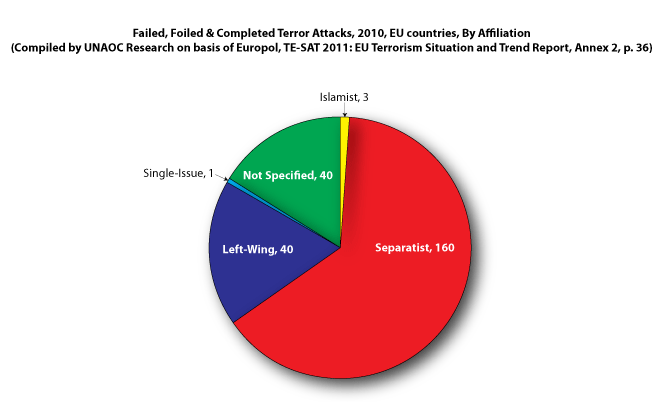
In the light of the recent tragedy in Norway, the EUROPOL TE-SAT 2011: EU Terrorism Situation and Trend Report, has some interesting statistics and analyses.
The attached figure represents a summation by UNAOC Research of Table 2 (“Failed, Foiled, and Completed Terror Attacks in EU countries in 2010 by type of affiliation/issue”) in the report.
According to this report, there were a total of 249 terrorist attacks in EU member countries in 2010.
Although there were no right-wing attacks in 2010, the report points to the importance of media strategy and changing the narrative about immigration to counter right-wing extremism. According to the report, the “professionalism of right-wing propaganda” is key in showing the desire of right-wing extremist groups to enlarge and spread their ideology. The report also expresses concern that if the unrest in the Middle East and North Africa region “leads to a major influx of immigrants into Europe, right-wing terrorism might gain a new lease of life by articulating more widespread public apprehension about immigration.” (p. 7).
Of these 249 attacks, the number of attacks attributed to “separatists” is more than 64 percent. This reveals the importance of good governance of cultural diversity because in most cases these are people who are using terror as a tactic to draw attention to their perceived ethnic/religious/linguistic marginalization.
There were three attacks characterized as “Islamist” by the report. However, the report devotes an entire chapter to the threat of Islamist terrorism and states that member states report that the threat of Islamist terrorism is high.
